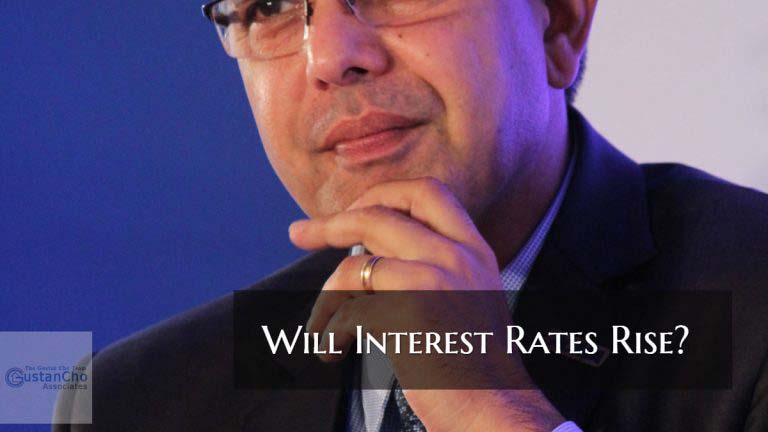In this guide on Gustan Cho Associates, we will keep our viewers updated on the recent real estate and mortgage market forecast that may affect you. The stock market has shown a Wild Roller coaster ride in the last couple of weeks, especially for the week of June 2022. Many experts are asked whether mortgage rates will be sliding downwards in 2023. John Strange of Gustan Cho Associates explains the following:
This means the seller does not need to worry if the home appraises for less than you are willing to offer (you will need to make the difference up in cash out of pocket if the home appraises for less than the contract price). It will also ensure they do not need to complete any repairs on the home to close the transaction.
The consensus among housing and mortgage experts all unanimously concur rates and housing pricing will drop in 2023. Inflation continues to soar to record-breaking numbers. Gas remains high. The car parts shortage continues. Mortgage rates are surpassing the 7% mark. A year ago, rates were at 2.5% on 30-year fixed-rate mortgages. The good news is home prices seem to start decreasing.
What Factors Affect The U.S. Housing Market?
The housing market in the U.S. is not too healthy. Whenever home prices increase by almost 50% in three years, that is not a good sign. The demand for housing and rates spiraled out of control from 2.5 June 2021 to 7.125% today. There is no equilibrium between the housing and mortgage markets and the overall economy.
Many economists say the main reason is the growing concern that the Chinese economy is cooling considerably. The Chinese government has recently lowered interest rates. The move dramatically affected the real estate and mortgage market forecast to boost foreign investment and deter inflation.
Commercial construction in China grew much higher than our residential boom ten years ago. This article will discuss real estate and mortgage market forecasts and their effects In Housing. Also, over the past few years, we have seen rapid home price appreciation nationwide. High home prices and high-interest rates have cooled down the real estate market.
Is The U.S. Housing Market Cooling Down?
If you have been following the news, you know that interest rates have hiked exponentially since the beginning of 2022. Just 12 months ago, the average 30-year fixed mortgage rate was 3%. Today that number is over double, nearly 7%!! This has created ripples in the national and local economies. As a whole, mortgage applications and real estate transactions are significantly down year over year because of these rate hikes.
Buying a House in the Sellers Versus Buyers Market
We will now detail buying a home in a sellers’ market compared to a buyers’ market. Buying a home in a seller’s market is always a challenge. During the COVID-19 coronavirus pandemic, we saw a strong sellers’ market in most of the United States. Many individuals now work remotely, and many families want to move closer to family members. The demand for homes was extremely high. Due to the country’s economic health during the pandemic, the federal reserve dropped the overnight interest rate to 0%. So, we had a perfect storm of high demand and record-low interest rates. This created a boom in the housing market and even created bidding wars across the nation.
What Makes a House Offer Stand Out?
How to make your real estate offer stand out in buyers’ and sellers’ markets. Buying a home in today’s market can be challenging. Gustan Cho Associates are on the front line of the current real estate market and are here to help you navigate the waters. In this blog, we will detail how to purchase a house in a buyers’ market, buy a house in a sellers’ market, and a few new tips and tricks for navigating current market conditions. These are crazy times we live in, but please note there are still ways to buy a home in a financially savvy way.
What Happens on Bidding War on a House?
What is a bidding war? A bidding war is a competition between numerous potential homebuyers increasing their offers to win the deal. This means a home would commonly sell for over the asking price. Because many Americans could sell their home for such high amounts, so many decided to sell. In fact, during February 2022, properties spent an average of 18 days on the market, and realtors reported an average of 4.8 offers on every home sold. Many Americans could sell their home and walk away with a large chunk of change.
Real Estate and Mortgage Market Forecast Today
Real Estate and Mortgage Market Forecast If Rates Continue To Increase
In some states, like Illinois, Rhode Island, California, ad Mississippi, pension obligations and Medicaid fulfillment costs are bankrupting states. Mismanaged states that took more out than put in are getting a major financial burden, translating taxpayers’ need to fulfill the deficit. For instance, Illinois has lost many high earners who have moved to warmer climates with more favorable tax rules.
Real Estate and Mortgage Market Forecast on Housing Inventory
Can You Negotiate the Price of a House in Sellers’ Market?
How to purchase a house in a sellers’ market. Below are some tips for making your offer stand out in a multiple-offer situation. You may want to offer the above asking price to show your seriousness. If you use a mortgage, you will want to close as fast as possible or at least offer the seller a quick closing. Gustan Cho Associates can facilitate a quick closing date to help your offer win. Just because you offer a fast closing doesn’t mean you need to be firm; you can also be flexible.
How To Negotiate With Seller To Accept Your Officer in Sellers Market
Giving the seller the choice of when to move will help your offer stand out. You will also want to put down a large earnest money deposit. A larger deposit gives the seller more confidence in your offer. Remove contingencies such as appraised value and inspection contingencies.
Can You Get Seller Concession During Sellers Market
Unfortunately, asking for seller-paid closing is impossible in a sellers’ market. So, seller concessions at zero dollars are a must. In the sellers’ market, we just experienced, many clients were even writing a letter to the seller explaining why the home is a great fit for them and their families. Creating an emotional tie for their home being passed down is a great way to have your offer accepted.
Many sellers are not inclined to sell their houses to a real estate investment firm. They would much rather sell to a new family who will appreciate the home for many years. Buying a home in a sellers’ market can be pure chaos. Having your finances as strong as possible will help you navigate this process.
Buying a House During a Buyer’s Housing Market
This section will discuss buying a home in a buyers’ market. This is much easier compared to a sellers’ market. While we are not in a true sellers’ market now, we are turning tides. A buyers’ market occurs when there is ample inventory and low demand. Due to the interest rate hikes, we are seeing a turn into a buyers’ market. Inventory has subsequently gone up since the beginning of summer across the nation. Homes are now staying on the market much longer compared to months past.
What Benefits Do Homebuyers Have in a Buyer’s Market
The buyers’ market does give you the upper hand. There are now fewer bidding wars which will eliminate an extra layer of competition in your homebuying process. This can also be a great time to purchase a house because home values decrease during a buyer’s market. So, we are starting to see some significant price reductions nationwide. Since you know you may have the upper hand in buying a home, you can ask for more from the seller.
What Characterizes a Seller’s Market
A contract will have more contingencies because sellers are more inclined to offer incentives. Many sellers need to leave their homes for family or financial reasons. Working with a highly motivated real estate agent willing to fight for you is important. Since a sellers’ market will offer you incentives such as seller played closing costs, you may keep more money in your pocket during the home-buying process.
What Are Common Buyer Contingencies
As a buyer in a buyers’ market, you may also include contingencies in your contract, such as an appraisal contingency. If the home does not appraise for the agreed purchase price, you will get your earnest money back and be able to purchase a different home. The seller will be enticed to sell you the home at a lower price.
During a sellers’ market, most home buyers are forced to purchase the home “as-is”. During a sellers’ market, you may require the seller to fix a major item such as a furnace, roof, visible damage, or other major appliance.
If you notice more open house showings and homes being on the market for longer, this may indicate that the seller is motivated to work with you on the transaction. You may also add inspection contingencies where a seller must fix major issues before proceeding.
Is a 2-1 Buydown Mortgage Worth It?
Your real estate agent can help you search for homes that have been on the market for longer. As mentioned at this article’s beginning, we offer tips and tricks to navigate a buyers’ market. Lenders recently started offering a 2-to-1 buydown which the seller must finance. A 2-to-1 temporary rate buydown will lower your interest rate as the buyer for the first two years you are in the home. For year one, your interest rate will be decreased by 2%. During the second year of your mortgage, your interest rate will be lowered by 1%.
How Many Points Does a 2-1 Buydown Mortgage Cost?
For example, if you purchase a home in market conditions at 7.75%, in the first year of your mortgage, you will only pay 5.75%, and in the second year of your mortgage, you will only pay 6.75%. Then, starting in your third year, your rate is back to the original rate of 7.75%. Your monthly payments will be lower for the first two years to help you step into home ownership.
How Does The 2-1 Buydown Mortgage Work?
For this 2-to-1 buydown mortgage process to work, you must have the seller fund the missing interest payments negotiated on the contract. This 2-to-1 temporary rate buydown will give you some relief on interest payments during these crazy economic times. For more information on negotiating the seller-paid interest payments on your contract, please get in touch with Gustan Cho Associates. Dale Elenteny of Gustan Cho Associates shares the following:
Your real estate agent will need to add specific verbiage to your contract. We can assist homebuyers when writing the real estate purchase contract offer.
Gustan Cho Associates will continue to update our readers on current market conditions and tips for navigating the real estate market. We are constantly adding mortgage loan programs to our long list of mortgage options. Another solution is creating community land trusts to help decrease housing costs. Another solution is to encourage the development of micro-housing units that are smaller than traditional apartments and can be more affordable.
Best Mortgage Lenders For Bad Credit and Low Credit Scores
We are licensed in 48 states and always seek a competitive edge to help our clients save the most money possible. Buying a home can be scary, exciting, expensive, and fruitful all at the same time. A mortgage team who can guide you through the process is incredibly important. Our highly skilled experts are available seven days a week to help you with any mortgage-related questions, general mortgage questions, or assistance navigating current market conditions.
This guide will cover the housing market forecast for homebuyers in 2023. Were you looking for affordable housing in the Midwest? You might be surprised that it’s more challenging than you think. To resolve the housing shortage in Chicago, the city has loosened up its regulations and zoning, and opened its doors to joint venturing with private companies, according to Dale Elenteny of Gustan Cho Associates:
Chicago has partnered with several private companies and philanthropic organizations to create the Chicago Community Catalyst Fund, which will provide $100 million in financing for affordable housing developments.
Despite being known for its affordability and quality of life, the Midwest faces a housing crisis that has left many struggling to find suitable living arrangements. This blog post explores why the Midwest’s lack of affordable housing options is becoming increasingly problematic and how to overcome the obstacle. Read on to learn more! In the following paragraphs, we will cover the housing market forecast for homebuyers for 2023.
Apply For a Mortgage: Click Here
Housing Market Forecast on The Home Shortage Crisis
The Midwest has long been considered the heartland of America, a region known for its friendly Midwestern values and a strong sense of community. Several factors have contributed to the Midwest housing crisis, says Alex Carlucci of Gustan Cho Associates:
The housing market forecast on the housing crisis in the Midwest has disproportionately affected people of color and other marginalized groups, who often have fewer resources and safety nets to fall back on when they experience housing insecurity or homelessness.
One is the loss of manufacturing jobs in the region, which has led to decreased wages and increased poverty. With more people competing for homes, the situation worsened because new construction needed to catch up with demand, resulting in a severe shortage of affordable housing options.
Introduction to the Midwest housing crisis
In recent years the Midwest has been facing a housing crisis that is quickly making it one of the most expensive regions in the country to live in. Dale Elenteny, a veteran loan officer at Gustan Cho Associates, shares his experience with the housing market crisis of 2008:
The problem began during the housing boom of the early 2000s when prices for single-family homes in the Midwest started to rise at an unprecedented rate. The rise was partly due to investors from coastal regions buying up properties in the Midwest as second homes or investment properties, driving up prices even further.
At the same time, many young people were moving to the Midwest for jobs in the burgeoning tech and startup industries. With more people competing for fewer homes, prices skyrocketed, leaving many middle-class families out of the market.
Today’s Home Prices and Housing Market Forecast
Today, the average price of a home in the Midwest is nearly double what it was just a decade ago, and rents have increased by nearly 60%. This has strained families struggling to make ends meet and has forced many into homelessness or onto waiting lists for government-subsidized housing.
There is no easy solution to this crisis, but it is clear that something needs to be done to address the need for more affordable housing options in the Midwest. The Midwest housing crisis is a problem that has been escalating for years.
The region has seen a decrease in the availability of affordable housing and an increase in the number of people who are homeless or at risk of becoming homeless. The problem is exacerbated by the fact that many of the region’s cities are experiencing population declines, which means fewer potential renters or buyers for the existing housing stock.
Increasing Housing Market Forecast and Prices
Another factor is the increasing cost of housing, which has made it difficult for people on fixed incomes or low incomes to keep up with rent or mortgage payments. The problem is also compounded by the fact that there is a limited supply of affordable housing options in many Midwest cities.
The consequences of the Midwest housing crisis are far-reaching. They include increased homelessness, evictions, and foreclosures; strains on social service providers; and negative impacts on mental health and overall well-being.
There are several ways to address the Midwest housing crisis, but it will require commitment from all government and private sector involvement. Some possible solutions include investing in affordable housing initiatives.
Causes of the housing shortage in the Midwest
There are several causes for the housing shortage in the Midwest. One is that the region has experienced significant population growth in recent years, while the number of homes available has not kept pace. This is especially acute in cities like Chicago and Minneapolis, which have seen a boom in young professionals seeking jobs in the growing economy.
Another factor is that many available homes are too expensive for most people. The median home price in the Midwest is over $200,000, while the median income is only around $50,000. This means that even if people could find a place to live, they would be spending a huge chunk of their income on housing costs. There is also a need for more affordable rental options in the Midwest.
According to a recent report, nearly half of all renters in the region are considered “cost-burdened,” meaning they spend more than 30% of their income on rent. This leaves little room for other expenses and can make saving up for a down payment on a home difficult. Another solution is creating community land trusts to help decrease housing costs.
Housing Market Forecast on Inventory
The housing shortage in the Midwest is having a ripple effect throughout the economy. Businesses are struggling to find workers as help; they need help to afford to live near their job sites. Families are forced to move further away from urban areas in search of more affordable housing options. And low-income renters are being pushed out of neighborhoods as gentrification drives up rents.
Who is most affected by the shortage? In the Midwest, the lack of affordable housing options affects people of all income levels. The most affected are those with low-income or fixed incomes, such as seniors on Social Security or people with disabilities. People who are employed but don’t make much money struggle to find affordable housing.
A recent study found that nearly half of all renters in the Midwest spend more than 30% of their income on rent, which is considered unaffordable. Again the shortage of affordable housing is also impacting families and children. Many communities need to be safe and affordable places for families to live. This can lead to homelessness or families having to move frequently, disrupting children’s education and stability.
Growing Population Cause of Housing Market Shortage in The Midwest
Many factors contribute to the Midwest’s lack of affordable housing options, but one of the most significant is the region’s rapidly growing population. According to the latest Census data, the Midwest’s population grew by nearly 5% between 2010 and 2018, while the number of housing units in the region increased by just 3%. This imbalance has led to a tight housing market and rising prices, disproportionately affecting low- and middle-income families.
A recent study found that nearly half of all renters in the Midwest are considered “cost-burdened,.” This leaves little room for other essentials like food, transportation, and healthcare. For those already struggling to make ends meet, the shortage of affordable housing options can be devastating. If you or someone you know is struggling to find affordable housing in the Midwest, some resources are available to help.
Your local Housing Authority or community development office is a good place to start. They can provide information about available programs and assistance. Strategies for improving affordable housing options in the Midwest several strategies can be implemented to improve affordable housing options in the Midwest. One strategy is to increase funding for affordable housing initiatives at the local, state, and federal levels. Another strategy is incentivizing developers to build more affordable housing units.
Increased Regulations Adds To Housing Shortage
Additionally, zoning laws and regulations can be reformed to allow for more density and mixed-use developments, which can help increase the affordable housing supply. One way to increase funding for affordable housing initiatives is through public-private partnerships.
Private companies can also be incentivized to invest in affordable housing through tax breaks or other financial incentives. Zoning laws and regulations are often a barrier to increasing the supply of affordable housing.
In many cases, these laws limit the density that can be built in an area, which drives up the cost of land and construction. Reforming these laws could help make building more affordable housing units easier and more cost-effective. Additionally, changing zoning regulations to allow for more mixed-use developments could also help increase the supply of affordable housing and provide residents with access to essential amenities and services.
How To Increase Building More Homes in the Midwest
There are several strategies that communities and policy-makers can pursue to address the problem. One way to increase the supply of affordable housing is to make it easier for developers to build more units. This can be done by streamlining the permitting process, incentivizing developers who create affordable units, and reforming zoning laws for more density.
Another approach is to create or preserve existing subsidized housing units. This can be done through public-private partnerships, using public funds to buy and rehabilitate properties, or creating community land trusts. In addition, policies can be put in place to help low-income families afford rent.
One example is the Housing Choice Voucher program helps families with limited incomes cover a portion of their rent payments. Other options include increasing funding for affordable housing programs or providing tax breaks for renters. Regardless of the strategy, involving all stakeholders in decision-making will be important – from residents and community groups to developers and government officials. Only by working together will we find lasting solutions to the affordable housing crisis in the Midwest.
What are some creative solutions to Solve the Housing Shortage Crisis
The Midwest has a surprising lack of affordable housing options. This is due to many factors, including the region’s declining population, the high cost of living in rural areas, and the lack of investment in affordable housing initiatives. There are several creative solutions to this problem.
One solution is to create incentives for developers to build more affordable housing. This can be done by providing tax breaks or other financial incentives.
Ronda Butts has successfully guided many homeowners through obtaining a home on both the lending and real estate side. Ronda Butts does not represent buyers or sellers but offers free consultation in 48 states at Gustan Cho Associates by connecting homeowners, buyers, and sellers to the needed sources.
Housing Market Forecast For 2024 Into 2025
There is no one-size-fits-all solution to the affordable housing crisis in the Midwest, but some creative solutions have been effective in other regions. One solution is to create incentives for developers to build more affordable housing. This can be done by offering tax breaks, zoning changes, or other financial incentives.
Another solution is to increase funding for existing affordable housing programs. This can be done at the local, state, or federal level. It is important to promote policies that encourage mixed-income housing developments. This ensures that low- and middle-income families can access quality housing options.
The Midwest’s lack of affordable housing options is a serious problem that has been largely overlooked. With the rapid rise in home prices, many people cannot find homes within their budget, which can have lasting effects on families and communities.
Housing Market Forecast on Affordable Housing in the Midwest
If you should decide to buy, before you begin looking for a home and during the process, we have vast experience working with buyers to get them ready to purchase their dream home. We can take you through your home loan’s buying and financing process. Alaina Phillips, a dually licensed realtor and loan officer, shares her opinion on the housing market forecast about affordable housing:
It is important for state governments to take action and create more affordable housing options so that everyone has access to safe and comfortable living conditions. Investing in affordable housing will help individuals and benefit entire cities by creating jobs, boosting local economies, and providing stability to communities.
There is no one-size-fits-all solution to the affordable housing crisis in the Midwest. We also can connect you to title companies/attorneys and real estate agents in your area that can help as needed. Call or text Ronda Butts at 407-460-7999 or email at ronda@gustancho.com for more information and further assistance. Ronda is an experienced referral agent, a dually licensed real estate agent, and a mortgage originator.










